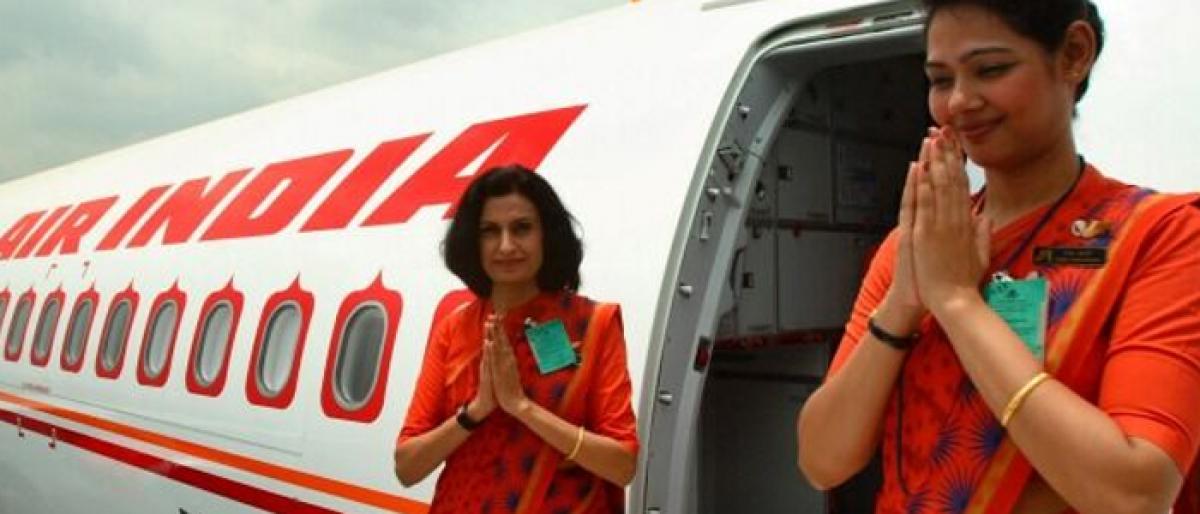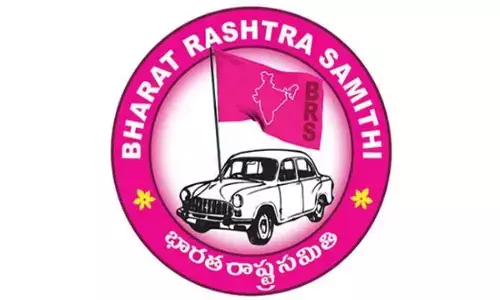Muslim meal on AI to save Hindu from Halal

On an Air India flight from London, the hostess walked down the aisle taking orders for dinner She leaned over and asked almost conspiratorially
On an Air India flight from London, the hostess walked down the aisle taking orders for dinner. She leaned over and asked almost conspiratorially.
"May I serve you your Muslim meal now?" "Muslim meal?" I asked with a start, casting a glance at my equally puzzled wife. The hostess was embarrassed. A new detail had been added to her hospitality protocol and she was not accustomed to it.
The damage, it turned out, had been done in my office. Responding to a column on dietary preferences, the person responsible for air reservation had hunted high and low for a simple non-vegetarian meal. No such meal was listed. Then he spotted "Muslim meal". The explanatory paragraph clarified that "all non-vegetarian meals are suitable for Muslims and are prepared in accordance with halal method."
The journalist in me took over.
"Fair enough, you have identified us as Muslim, but surely there are others on the flight who are non-vegetarians but not Muslim?" Of course, there are non-vegetarians on Air India but they would not accept the odium of Muslim ancestry simply to indulge their dietary preference. They want to eat meat but as thoroughbred Hindus.
Two consequences follow. Obstacles in the way of non-vegetarianism depresses the demand for non-vegetarian food. By the same token, Hindu passengers feel they are being short changed. This was reverse discrimination.
They see themselves being pushed to the lower end of the culinary caste system. The demand for non-veg, therefore, gains in decibel levels: we want non-veg, that's for sure, but one which is neither "Muslim" nor "halal." A three-way dietary division evolves: (1) Hindus not fussy about labels: "Muslim" or "halal" accept whatever is available. (2) Those for whom realization has been abrupt that what they have been eating for generations was "Muslim" - halal. Ignorance is bliss but not now that enlightenment has come riding on an Air India menu. (3) Simple vegetarians whose tribe, by the way, is growing by leaps and bounds in India as elsewhere face no problem whatsoever.
For the authors of the "Muslim meal" idea, the first category is the most disruptive because it has skewed the process of data collection on how potentially vegetarian or otherwise, India is. This is the key research required for advancing the aspect of Hindutva concerned with promoting non-Muslim dietary practices. If this category can stand its ground despite the disincentive of being called Muslims and halal eaters, this non-veg constituency might just stabilize, even grow. God forbid, it may come in the way of full spectrum Hindutva, vegetarianism et al.
The second category is demanding a non vegetarian meal which is unsullied by Muslim-halal connotations. This is a new demand. This clientele does not quite know what it wants; it knows what it does not want in the non-veg arena. It has clearly asked the catering department of Air India a question which is not easy to answer: what non-veg fare can you serve which is not Muslim-halal?"
Here the discussion acquires exactly the potential for which it was initiated – to polarise and, as a trial run, divide the aircraft cabin between vegetarians and non-vegetarians who, the perpetrators hope, would not like to be grouped as halal-eating Muslims. The cabin is, in this instance, a microcosm of the meat-mukt India of Hindutva's dreams.
A quick answer to halal is jhatka, the method of severing the animal's head with one stroke, favoured by Sikhs. The jhatka-halal debate is custom made for an Arnab Goswami show. Have a devout Sikh, a muscular Mullah and a Bajrang Bali Bhakt peer out of three windows. Extract all the gory details on jhatka and halal from the spokesmen of two distinct schools of slaughter. A possible walkout by the abstemious Bajrangi may well spur Hindu consolidation on an unprecedented scale.
On a more practical note, the "shosha" (mischief) started by AI can be put to some constructive use. A new approach to cuisine may involve drastic change: a non-veg cuisine developed over centuries as a near art form may have to be jettisoned from official banquets and national carriers. The problem will, of-course, arise when lynch mobs on the lookout for a cause, enter restaurants advertising non-veg fare. Individual non-vegetarians may also incur the wrath of the lynch mobs.
In fact a malicious rumour has been floated that the monkeys that have been let loose on Delhi's citizenry are an animal loving Minister's project directed against non-veg addicts. The monkeys, says the rumour, are being trained on the Ridge to block entry of meat into non-veg kitchens. The producer of super hit Bajrangi Bhaijan has threatened to go on hunger strike if the avatars of Bajrang Bali are involved in operations which have anything, negative or positive, to do with meat.
The hypocrisy around the cuisine at official banquets at Hyderabad House or even the Rashtrapti Bhawan until the other day has always bordered on the pathetic. There was an insistence on tasteless fare called Mughlai food at a time when streets named after the dynasty were under assault. The banquets begin with a bogus "toast" of some flat cola. This then is a good time to take a hard look at the rampaging Vegan movement globally. Climate change, animal care, fear of artificially inflated livestock for the table is turning the world to organic, vegetarian food. Jeremy Corbyn, who may well be Britain's Prime Minister one day, is a vegetarian.
The core idea of the Nouvelle cuisine Air India should be searching for (and not just creating communal trouble) was available in the "prasada" or "offering" cooked each day in gigantic vessels at the Dargah in Ajmer. The daily fare followed one golden principle: it should be acceptable to widest possible range of pilgrims. The "prasada" was free even of onion, garlic, mushrooms, potatoes or any vegetable which grows underground. This principle is followed in all major Hindu and Sikh places of worship. Somewhere here is the answer to Air India's quest. To monitor strict vegetarianism in flight, a free ticket may be considered for a representative of the lynch mob on every Air India flight.

















